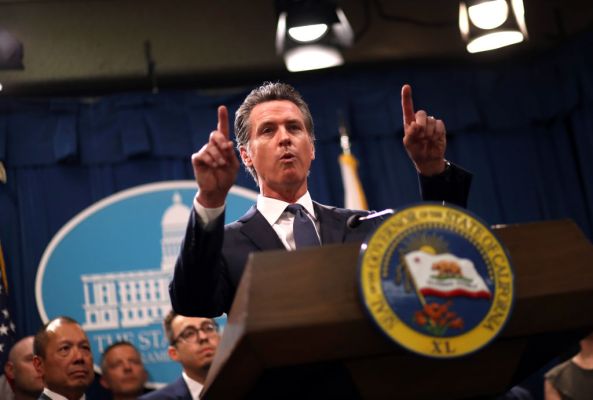California Gov. Gavin Newsom vetoed a bill Friday that would have required a human safety operator to be present any time a self-driving truck operated on public roads in the state.
The win for the autonomous trucking industry comes after the California Senate passed the bill in mid-September. The bill would have effectively banned driverless autonomous heavy-duty trucks from operating in the way they were designed.
“Assembly Bill 316 is unnecessary for the regulation and oversight of heavy-duty autonomous vehicle technology in California, as existing law provides sufficient authority to create the appropriate regulatory framework,” wrote Newsom in his letter blocking the bill.
Despite being a battleground for robotaxi companies like Waymo and Cruise to develop and commercialize their technology, California has some of the strictest autonomous vehicle regulation in the nation.
Companies have to go through many rounds of permits in order to test and deploy in the state, per the rules set out by the California Department of Motor Vehicles. To date, only light-duty trucks are even allowed on public roads.
The DMV has been considering lifting its current ban on testing autonomous vehicles that weigh over 10,001 pounds in the state. The agency held a public workshop earlier this year on the matter, which prompted California lawmakers to come out with the AB 316 bill. The bill would have limited the DMV’s future authority to regulate AVs, power the agency has held since 2012.
Assembly member Cecilia Aguiar-Curry introduced the bill in January. Advocates of the legislation, including the Teamsters union, argued that the state should have more control over the removal of safety drivers from self-driving trucks in order to protect California road users and ensure job security for truck drivers.
AV companies, industry representatives and chambers of commerce argued that the bill would not only hinder the advancement of technology that could save lives, but also limit supply chain innovation and hamper California’s economic competitiveness.
In his letter, Newsom said he trusts the DMV to continuously monitor the testing and operations of AVs on California roads, suspending or revoking permits as necessary to protect the public’s safety. He also said he would commit to incentivizing career pathways and training workers to equip them with the skills needed to engage with this emerging technology.
Newsom said he is directing the Labor and Workforce Development Agency to lead a stakeholder process next year to review and develop recommendations to mitigate the potential employment impact of AV trucks.
“Considering the longstanding commitment of my Administration to addressing the present and future challenges for work and workers in California, and the existing regulatory framework that presently and sufficiently governs this particular technology, this bill is not needed at this time. For these reasons, I cannot sign this bill.”
